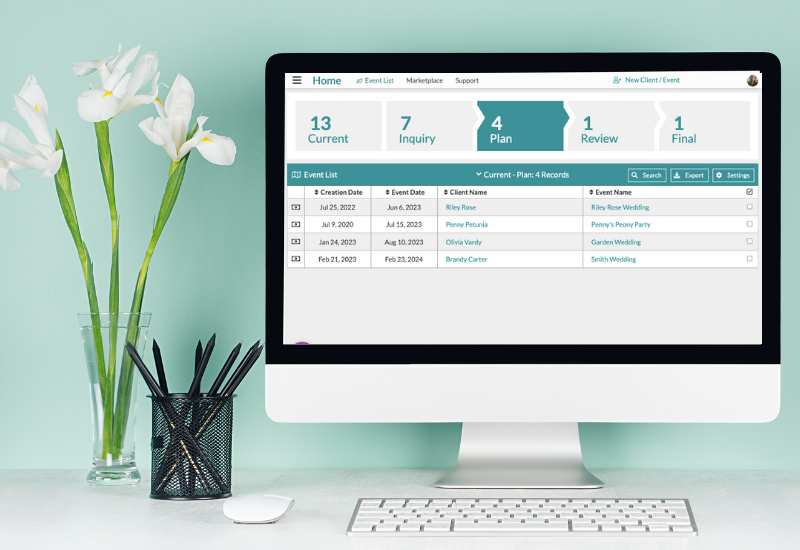
Our Support Team Director, Brandy, discusses The Event List in this month's edition of our Tips and Tricks series. If you missed our live webinar, here is a complete session recap!
Events are organized into different stages of the Event Pipeline based on their status. Use the pipeline as an organizational tool to track where you're at with each event!

To see which event statuses apply to which pipeline stages, click on the map icon in the top-left corner of the event list.
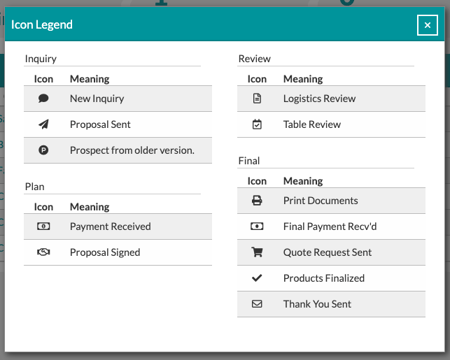
To change the status of an event, click on the status icon on the left side and select a new status for the event. Keep in mind that this will likely change the stage of the Event Pipeline that the event is in!
At the top-center of the Event List is the option to switch the view of events between the lists seen in the image below.
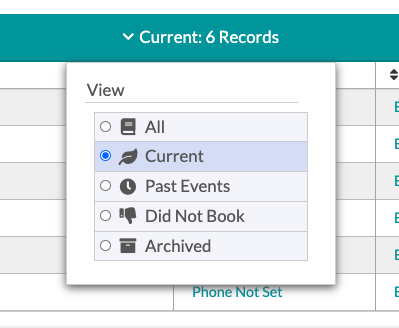
The Event List will always default to the 'Current' list, and you can navigate and move events to the various others. The 'Past Events' list will be automatically populated with (you guessed it) events with a past date; the 'Did Not Book,' and 'Archived' lists will be populated with events that are marked as such.
To move an event to either the 'Archived' or 'Did Not Book' list, click the checkbox on the right of the event and select the appropriate option at the bottom center.

Events can be returned to the 'Current' list similarly, but from the list, they have been associated with. For example, you must restore an archived event from the 'Archived' list.
To search for an event or client, click the 'Search' button in the top-right corner of the list, enter the desired search terms and/or parameters, and click the 'Search' button to execute.

Did you know you can search using the 'Custom Properties' entered on the 'Details' page? You can! Click here to learn more about using 'Custom Properties'.
To generate a document containing the information found on the Event List, click the 'Export' button in the top-right corner of the list.

The generated document will include anything in your current view of the list; all of the information will be exported, whether those are past events, search results, or your list of current events. This also applies to the displayed data columns; the export will only include the columns you've included in the view.
There are many options to customize how your Event List is displayed ad how you interact with it; the combinations are nearly endless. To start editing the settings, click the 'Settings' button in the top-right corner of the list.

A window will open in the center of the screen displaying all customization options.
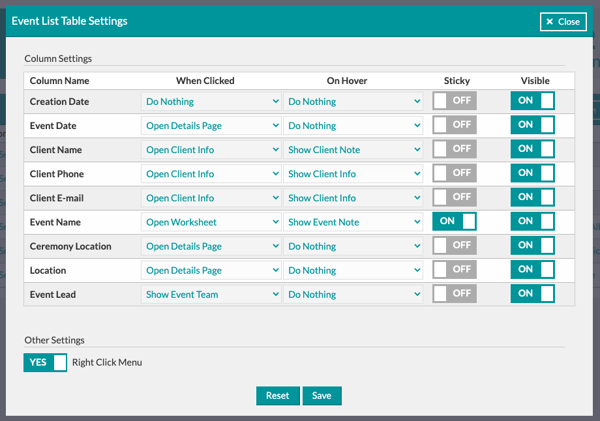
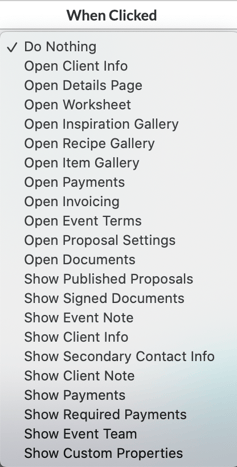
When Clicked: Use the drop-down menu to determine what action should occur when data within the associated column is clicked. You'll notice there are many options!
Note: There is an important distinction between the 'Open' and 'Show' functions. If an 'Open' option is selected, the corresponding page will be opened by clicking on the associated information. If a 'Show' option is selected, a pop-up window will be displayed on the Event List without directing you to another page.
On Hover: Use the drop-down menu to determine what action should occur when the data within the associated column hovers over with the mouse.
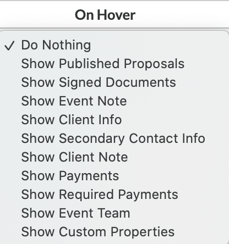
Each corresponding option will display a pop-up window relating to the associated event on the Event List.
If a column is sticky, that means it will hold its place in the list when scrolled. Meaning that when you scroll far enough to the right that the column would normally be hidden from view, it will instead hold its place, and the adjacent columns will scroll behind it.
Here's an example of what it looks like when scrolling with sticky columns.

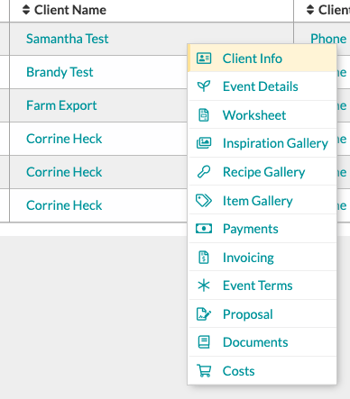
This feature makes it very easy to navigate, but it will override the default right-click options in your browser, so keep that in mind!
If you get a little carried away and want to revert the Event List settings back to the defaults, click the 'Reset' button at the bottom center.
Watch the full replay below!
Follow Details on Instagram!